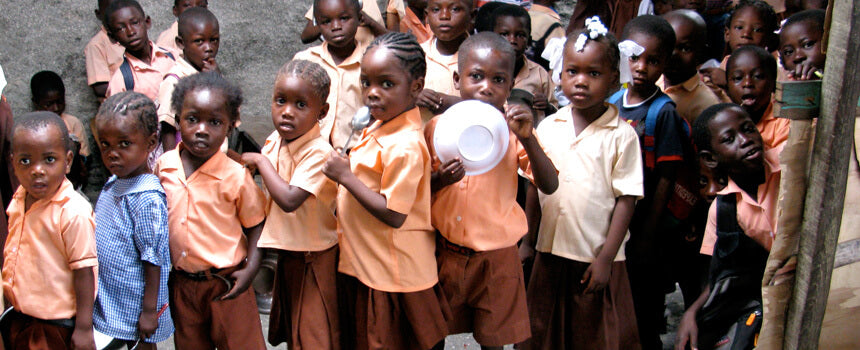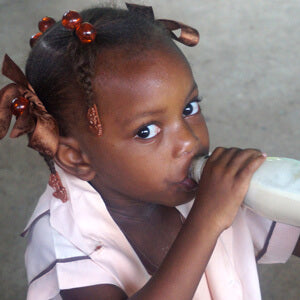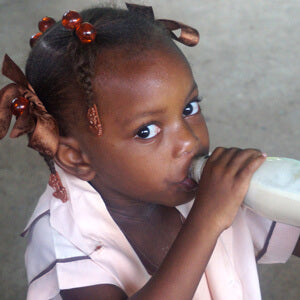Day 23
Two hot meals for a schoolchild in Haiti
 A growling stomach disturbs learning!
A growling stomach disturbs learning!


Making a big difference in Haiti with a warm meal

need
Feeding school children in Haiti’s slums.
activity
The Haitian aid organization St. Luke Foundation prepares a healthy, warm meal for all students in schools every day.
Measurable performance
Number of school meals that could be provided to the children.
Result
Fewer days of absence due to illness and better grade averages. More students successfully complete primary school.
Systemically relevant impact
More students are qualifying for demanding jobs. This has a positive long-term impact on Haiti's development.
background
The good deed
AboutHaiti
Port au Prince
Capital city
10 317 500
Population
833 USD
Gross domestic product
per capita per year
168
Human Development Index
(Human Development Index)




